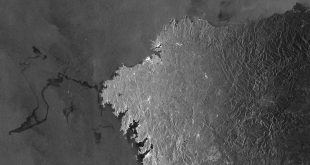Ultrafast cameras unveil processes that are invisible to the naked eye. At Mines Alès, Pierre Slangen, a specialist in applied optics, uses them to build advanced technology devices and thus to understand how gases and liquids are diffused during environmental disasters. Certain physical phenomena occur in such small time scales that they remain practically invisible without the use …
Read More »Search Results for: marine pollution
Marine oil pollution detected from space
Whether it is due to oil spills or cleaning out of tanks at sea, radar satellites can detect any oil slick on the ocean’s surface. Over 15 years ago, René Garello and his team from IMT Atlantique worked on the first proof of concept for this idea to monitor oil pollution from space. Today, they are continuing to work on …
Read More »Campus Mondial de la Mer: promoting Brittany’s marine science and technology research internationally
If the ocean were a country, it would be the world’s 7th-largest economic power, according to a report by the WWF, and the wealth it produces could double by 2030. The Brittany region, at the forefront of marine science and technology research, can make an important contribution to this global development. This is what the Campus Mondial de la Mer …
Read More »Decision support tools for maritime accident management
The European MANIFESTS project, launched in January, is a two-year project bringing together a consortium of nine research institutions and public administrations with complementary expertise in managing maritime accidents. Funded by the European Commission, this project aims to improve responses to emergencies related to these accidents. An interview with Laurent Aprin, a researcher at IMT Mines Alès, a project partner. Could …
Read More »VIGISAT: monitoring and protection of the environment by satellite
Following on from our series on the platforms provided by the Télécom & Société numérique Carnot institute, we will now look at VIGISAT, based near Brest. This collaborative hub is also a project focusing on the satellite monitoring of oceans and continents in high resolution. On 12th July, scientists in Wales observed a drifting iceberg four times the size of …
Read More »Pierre Slangen
IMT Mines Alès | #environment #optic #marinepollution
Read More »Smarter models of the ocean
The ocean is a system that is difficult to observe, whose biodiversity and physical phenomena we still know very little about. Artificial intelligence could be an asset in understanding this environment better. Ronan Fablet, a researcher at IMT Atlantique, presents the projects of the new Océanix Research Chair. What is the objective? To use AI to optimize models for observing the ocean. …
Read More »Sand, an increasingly scarce resource that needs to be replaced
Humans are big consumers of sand, to the extent that this now valuable resource is becoming increasingly scarce. Being in such high demand, it is extracted in conditions that aren’t always respectful of the environment. With the increasing scarcity of sand and the sometimes devastating consequences of mining at beaches, it is becoming crucial to find alternatives. Isabelle Cojan and …
Read More »Bioplastics: “still a long road to higher performance”
As required by environmental transition, materials of the future must be “greener”. Bioplastics in particular have become a main focus of attention, and are often presented as the solution to the pollution caused by the plastics we use every day, which can take hundreds of years to decompose. Patricia Krawczak, a researcher at Mines Douai, studies these new polymers. Yet …
Read More »René Garello
IMT Atlantique | Remote sensing, Signal processing, Satellite, Environment
Read More » I'MTech L'actualité scientifique et technologique de l'IMT
I'MTech L'actualité scientifique et technologique de l'IMT









